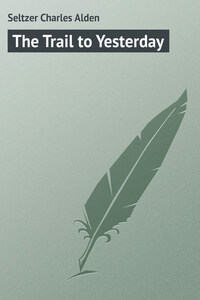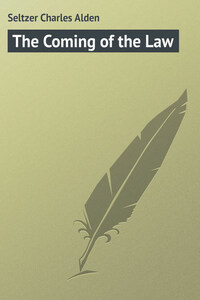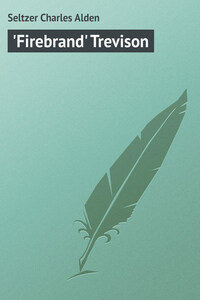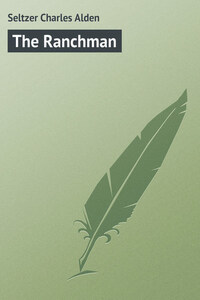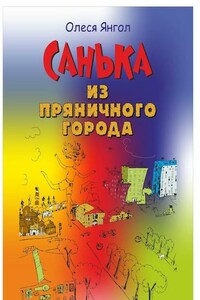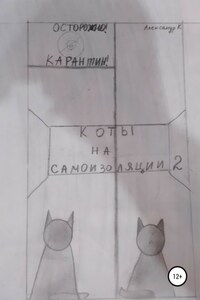CHAPTER I
A WOMAN ON THE TRAIL
Many disquieting thoughts oppressed Miss Sheila Langford as she halted her pony on the crest of a slight rise and swept the desolate and slumberous world with an anxious glance. Quite the most appalling of these thoughts developed from a realization of the fact that she had lost the trail. The whole categorical array of inconveniences incidental to traveling in a new, unsettled country paled into insignificance when she considered this horrifying and entirely unromantic fact. She was lost; she had strayed from the trail, she was alone and night was coming.
She would not have cared so much about the darkness, for she had never been a coward, and had conditions been normal she would have asked nothing better than a rapid gallop over the dim plains. But as she drew her pony up on the crest of the rise a rumble of thunder reached her ears. Of course it would rain, now that she had lost the trail, she decided, yielding to a sudden, bitter anger. It usually did rain when one was abroad without prospect of shelter; it always rained when one was lost.
Well, there was no help for it, of course, and she had only herself to blame for the blunder. For the other – not unusual – irritating details that had combined to place her in this awkward position she could blame, first Duncan, the manager of the Double R – who should have sent someone to meet her at the station; the station agent – who had allowed her to set forth in search of the Double R without a guide, – though even now, considering this phase of the situation, she remembered that the agent had told her there was no one to send – and certainly the desolate appearance of Lazette had borne out this statement; and last, she could blame the country itself for being an unfeatured wilderness.
Something might be said in extenuation of the station agent’s and the Double R manager’s sins of omission, but without doubt the country was what she had termed it – an unfeatured wilderness. Her first sensation upon getting a view of the country had been one of deep disappointment. There was plenty of it, she had decided, – enough to make one shrink from its very bigness; yet because it was different from the land she had been accustomed to she felt that somehow it was inferior. Her father had assured her of its beauty, and she had come prepared to fall in love with it, but within the last half hour – when she had begun to realize that she had lost the trail – she had grown to hate it.
She hated the desolation, the space, the silence, the arid stretches; she had made grimaces at the “cactuses” with their forbidding pricklers – though she could not help admiring them, they seemed to be the only growing thing in the country capable of defying the heat and the sun. Most of all she hated the alkali dust. All afternoon she had kept brushing it off her clothing and clearing it out of her throat, and only within the last half hour she had begun to realize that her efforts had been without result – it lay thick all over her; her throat was dry and parched with it, and her eyes burned.
She sat erect, flushed and indignant, to look around at the country. A premonitory calm had succeeded the warning rumble. Ominous black clouds were scurrying, wind-whipped, spreading fan-like through the sky, blotting out the colors of the sunset, darkening the plains, creating weird shadows. Objects that Sheila had been able to see quite distinctly when she had reined in her pony were no longer visible. She stirred uneasily.
“We’ll go somewhere,” she said aloud to the pony, as she urged the animal down the slope. “If it rains we’ll get just as wet here as we would anywhere else.” She was surprised at the queer quiver in her voice. She was going to be brave, of course, but somehow there seemed to be little consolation in the logic of her remark.
The pony shambled forward, carefully picking its way, and Sheila mentally thanked the station agent for providing her with so reliable a beast. There was one consoling fact at any rate, and she retracted many hard things she had said in the early part of her ride about the agent.
Shuffling down the slope the pony struck a level. After traveling over this for a quarter of an hour Sheila became aware of an odd silence; looking upward she saw that the clouds were no longer in motion; that they were hovering, low and black, directly overhead. A flash of lightning suddenly illuminated the sky, showing Sheila a great waste of world that stretched to four horizons. It revealed, in the distance, the naked peaks of some hills; a few frowning buttes that seemed to fringe a river; some gullies in which lurked forbidding shadows; clumps of desert growth – the cactus – now seeming grotesque and mocking; the snaky octilla; the filmy, rustling mesquite; the dust-laden sage-brush; the soap weed; the sentinel lance of the yucca. Then the light was gone and darkness came again.
Sheila shuddered and vainly tried to force down a queer lump that had risen in her throat over the desolation of it all. It was not anything like her father had pictured it! Men had the silly habit of exaggerating in these things, she decided – they were rough themselves and they made the mistake of thinking that great, grim things were attractive. What beauty was there, for instance, in a country where there was nothing but space and silence and grotesque weeds – and rain? Before she could answer this question a sudden breeze swept over her; a few large drops of rain dashed into her face, and her thoughts returned to herself.
